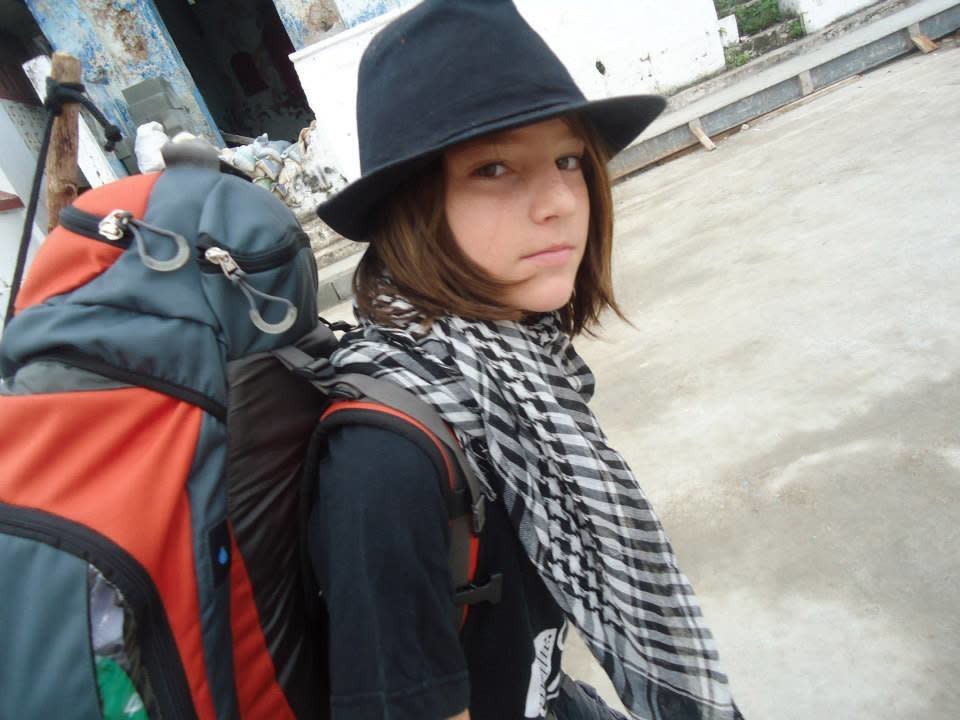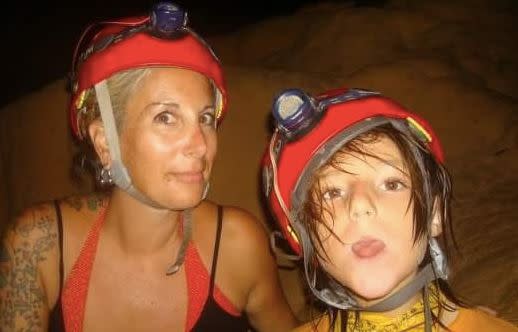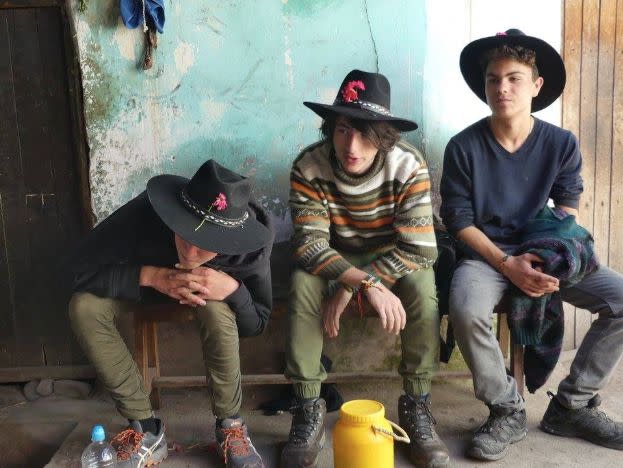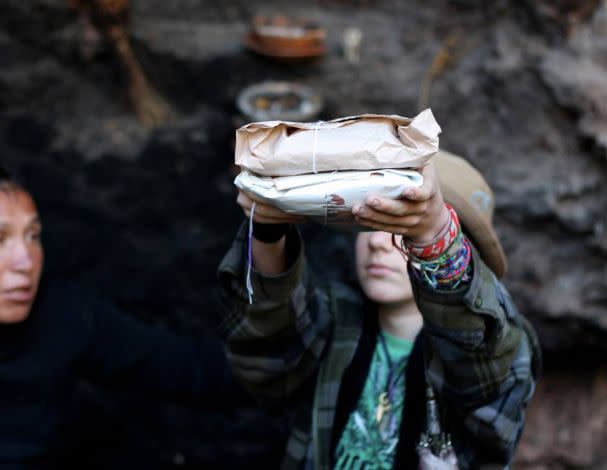I Quit School At 9 To Live A Nomadic Lifestyle

Growing up in Los Angeles, my understanding of the world was woefully inadequate, only diversified by my predominantly Latino neighborhood and the international travelers my mom hosted through Couchsurfing. I was insatiably curious and listened to many stories about other countries and homelands, but the words still only rattled around in my head without any weight.
Everything changed in 2008, when I was 9 and the economic crisis tore through the U.S.; what most economists consider to be the greatest crisis since the Great Depression, I consider to be the catalyst for change that my mom and I so desperately needed.
We were miserable. I hated my school and felt disconnected from my mom. My mom, a single parent workaholic who worked upwards of 80 hours a week, felt it too. By society’s standards she was doing her best for me, but she couldn’t help and feel that she missed her son’s childhood entirely. Before the crash happened, we were privileged and unhappy, and neither one of us could reconcile those two things.
My mom owned a branding and design agency, and when the recession hit, her clients were the first to go. She knew she would be closing her business for good, and one night, sitting in her empty office space, she turned to me and said something that caught me by surprise: “Let’s just go. Let’s get rid of everything and go have an adventure!”
And that was that. I was nervous, but more than excited to finally see the world for what it truly was. Within six months we had given up our loft, sold all of our belongings, found a home for our dog and gotten our documents in order. It was surreal seeing my own face in that passport, like that little portrait was the window to the great unknown I had always dreamt of. I had never had a passport before, and now, more than ever, the world felt like it was within my grasp.
The original plan was to take a year and travel south through Central and South America until we reached Argentina, and then, having gotten it out of our system, we’d resume our lives in the U.S. We chose Latin America because it was close, in the chance of a worst-case scenario. Not to mention, all of my friends growing up had been Latino, and I wanted to truly understand what their cultures were like.
The original plan was to take a year and travel and then, having gotten it out of our system, resume our lives in the U.S.
Since we thought we’d only be gone a year, my mom pulled me out of school with no doubt that one year of international travel would be more educational than 5th grade. She figured that she could always just enroll me in another school when we got back.
Some of my mom’s friends were supportive, but others felt it necessary to constantly chime in on the safety of traveling with a child or the perceived irresponsibility of our decision. One friend even suggested that we look into “kidnap insurance.” Our extended family, on the other hand, stayed silent, quietly believing that we’d be back within a few months and that this was all just a passing phase.
As the date finally rolled around, and we made our first step off the plane in Mexico, the gravity of what we had done finally caught up to us. Here we were, in a country that we had been told repeatedly was dangerous, a country where neither one of us spoke the language and where things were new and overwhelming. Those first months were challenging, but we pushed through it, and soon enough we found ourselves settling into a more nomadic lifestyle.
Admittedly, in those first months, we acted like tourists. We did all of the activities and moved quickly, giving ourselves only a few days in each location. But as time went on, our mentality began to shift. We slowed down, no longer feeling the need to rush from place to place.
Before we knew it, we were eight months in and had only made it as far as Guatemala, and by that point, we knew there was no going back. Even though our savings had dried up in that first year, we were determined to make this new lifestyle work. This is when it stopped feeling like a vacation and more like a lifestyle.

And this is when my mom had to make a “responsible” decision as a parent. Now that we had decided to do this full-time, what were we going to do about my education? She began researching, and soon enough, she found her answer: unschooling. Unschooling is an educational method and philosophy that advocates learner-chosen activities as a primary means for learning. Unschoolers learn through their natural life experiences, including play, personal interests, work experience, travel, books and social interaction. And what was even crazier was the fact that I had already been doing it, and it was working.
My mom had started a blog about our experiences so that friends and family back home could keep up with us, but we were shocked when people from all over started reading it. Having suddenly found an interest in self-directed learning, she began to write about parenting and learning through the world (something we eventually came to call worldschooling). This is what supported us for the next four years of our lives abroad.
In those years we traveled through a handful of countries, spending at least a few months in each. I attended a bilingual school in Guatemala, worked at a hostel in Colombia and had met hundreds of Couchsurfers ― this time as the visitor and not the host. I quickly learned Spanish through sheer immersion and discovered my passion for history and art, writing and mythology. I met hundreds of people and was always socially engaged (and always saying my goodbyes). And most of all, I was able to reclaim my relationship with my mom, something that had been lost long ago.
I learned Spanish through sheer immersion and discovered my passion for history and writing. Most of all, I was able to reclaim my relationship with my mom.
Our fifth year of travel is when we hit a rough patch. When I turned 14 (a trying time, regardless of circumstance), I began to feel isolated, alone, like no one understood where I was coming from. I struggled to make meaningful, lasting connections, and I fell into a deep depression. I desperately wanted community, but the community I wanted was nowhere to be found. So we decided that we would create the community ourselves. That’s when my mom and I co-founded Project World School, a company that organizes temporary learning communities around the world, with the intent of growing the community of worldschooled teens and sharing a different set of worldviews with them. It was a wild success, and though it’s a lot of work, PWS still leads us to new places and experiences to this very day, and it’s what sustains our travels.

I’m 19 now and couldn’t be happier with my life: I am balanced, well-adjusted and fulfilled. I have a beautiful self-made network of friends and peers that spans the world over, I’ve maintained healthy relationships with people despite the distances between us, and I’m active and passionate in my learning process. For now, I’m uninterested in pursuing a university education. I’m already an accomplished writer and a published poet; I work for myself, and I make my own way through this great big world of ours.
Even though I’m currently in the process of setting out on my own, my mom and I are still very close, and because of this journey that we’ve shared together, our relationship will never be the same.
It’s been 10 years since we made the decision that started it all. Thirty-six countries, five continents and countless experiences later, I find myself as a young adult who has spent half of his life walking the line of uncertainty and immersing himself in the many cultures he’s encountered on the way. I find a person who has been without a house but has never been homeless, a person who collects memories over things and sees the unique value and beauty that every different perspective brings.
I find myself as someone who grew up without school but is by no means uneducated. Most importantly, after 10 years of living abroad, I am no longer a person who approaches situations as just an American, but instead as a global citizen. And right now, sitting in Peru as I write this article, I know while I still haven’t made it to Argentina yet, I’ll make it there one day.

Have a compelling first-person story you want to share? Send your story description to pitch@huffpost.com.
This article originally appeared on HuffPost and has been updated.

